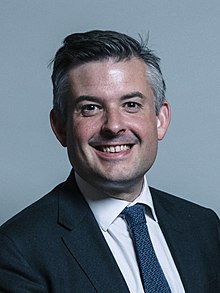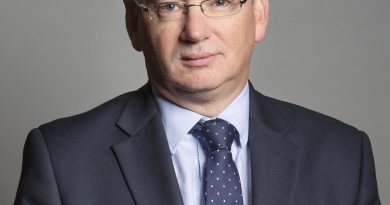Jonathan Ashworth – 2020 Speech on Covid-19
The speech made by Jonathan Ashworth, the Shadow Secretary of State for Health and Social Care, in the House of Commons on 1 September 2020.
We are indeed all on the same side in fighting this virus. I hope that the Secretary of State understands that when we raise issues, we do so because we urge the Government to improve their response to fighting this virus. This remains a lethal virus that leaves many with serious, debilitating sickness. Everything must be done to drive down and eliminate infections and suppress the virus completely.
With that in mind, I hope that the Secretary of State can answer a few questions today. I am grateful for advance sight of his statement. First, to avoid a second national lockdown, which we all want to avoid, an effective test and tracing regime is vital. I listened carefully to the figures that he outlined, but he did not tell the House that the numbers going into the system have actually fallen in the past week, from 79% to 72%. This system is not yet world beating.
Throughout questions the Secretary of State has rejected criticisms of the private sector contractors who are involved in delivering the system, so there is no point in me raising them again, but would it not be better if money was spent on investing in local public health teams, particularly in those areas where restrictions are in place, so that they can do more door-to-door testing, as we have seen, for example, in Leicester? Surely that would be a better use of public funding, for example, than paying for so-called influencers on Instagram to big up test and trace.
On testing itself, the Secretary of State now supports mass testing as a policy aim. It is something I have been calling for, for some months. It is something the former Health Secretary, the Chair of the Health Select Committee, has been calling for. Indeed, we tried to persuade the Secretary of State of its merits before the summer when we asked him to introduce regular testing of NHS front-line staff. He whipped his MPs to vote against it, but will he now, given that he is in favour of mass testing, introduce regular weekly testing of all front-line NHS workers?
To move to mass testing means evolving our testing regime from one that provides antibody tests and diagnostic PCR—polymerase chain reaction—tests effectively to a system of mass screening using more rapid, on-the-spot antigen tests. The Secretary of State referred to rapid tests in his statement. Can he tell us when rapid, on-the-spot antigen tests will be rolled out across society and which sectors of the workforce will be first in the queue to access those tests?
Will the Secretary of State also look at introducing saliva testing, which is being used in Hong Kong, for example, and will he ensure the quick turnaround of tests? I wonder whether he has seen the study from Yale that suggests that saliva testing could be as sensitive as nose and throat swabs. What is his attitude towards pooled testing, which would surely increase the capacity in areas of low prevalence? Does he have a plan to introduce pooled testing? Will he allow GPs to carry out testing or, at the very least, to arrange a test for their patients directly? They currently have to ask their patients to log on to the national system, which is causing huge delays.
On local lockdowns, the Secretary of State said that he wants to involve MPs and elected officials. What process will be used to properly consult local Members of Parliament? What can MPs expect? When a decision has been made to put a local area into restriction, will he publish the specific evidence behind that decision? Why is it, for example, that our constituents in Leicester are not able to gather in private gardens? Can he publish the scientific evidence for that decision?
In Trafford, we have seen infections increase. The local authority leader and the director of public health felt that restrictions should continue, but the hon. Member for Altrincham and Sale West (Sir Graham Brady) felt that they should be lifted. Why did the Secretary of State overrule the advice of the director of public health and instead endorse the representations of the chairman of the 1922 committee? There was a similar story in Bradford, and in Bolton, where restrictions are due to be lifted tonight, infections are increasing. Is it still his plan to lift restrictions tonight in Trafford and Bolton, even though infections are increasing compared with last week, when he made his initial decision?
The Secretary of State is right: in the end, a vaccine is our best hope to stop this pandemic. Vaccines save hundreds of millions of lives every year, and I repeat my offer to work with him on a cross-party basis to promote uptake and challenge the poison of anti-vax myths, including those that we witnessed at the irresponsible and dangerous demonstration this weekend in Trafalgar Square. We will work constructively with him on the proposals he brings to the House. Does he share my concerns about those leaders, such as Putin and Trump, who are trying to short-cut testing to rush out a vaccine, undermining safety and efficacy, potentially damaging millions of lives and giving succour to the anti-vax movement?
Finally, health protection is built upon good population health. Poverty makes people sick. Ending cuts and tackling deprivation as a determinant of ill health is vital to improving and protecting people’s health. But the Secretary of State is now embarking on a risky, distracting restructuring of Public Health England in the middle of a pandemic. Tory MPs like to blame Public Health England—it is such rotten luck that these decent, hard-working, competent Ministers are always let down by the people who work for them—but is not the reality that this restructuring will sap morale and focus and should wait until the end of the pandemic? The UK has suffered the highest per capita death rate of any major world economy. To get through this winter safely, our NHS and public health services need resources, and staff need personal protective equipment, fair pay, security and support. I hope he can deliver that.


